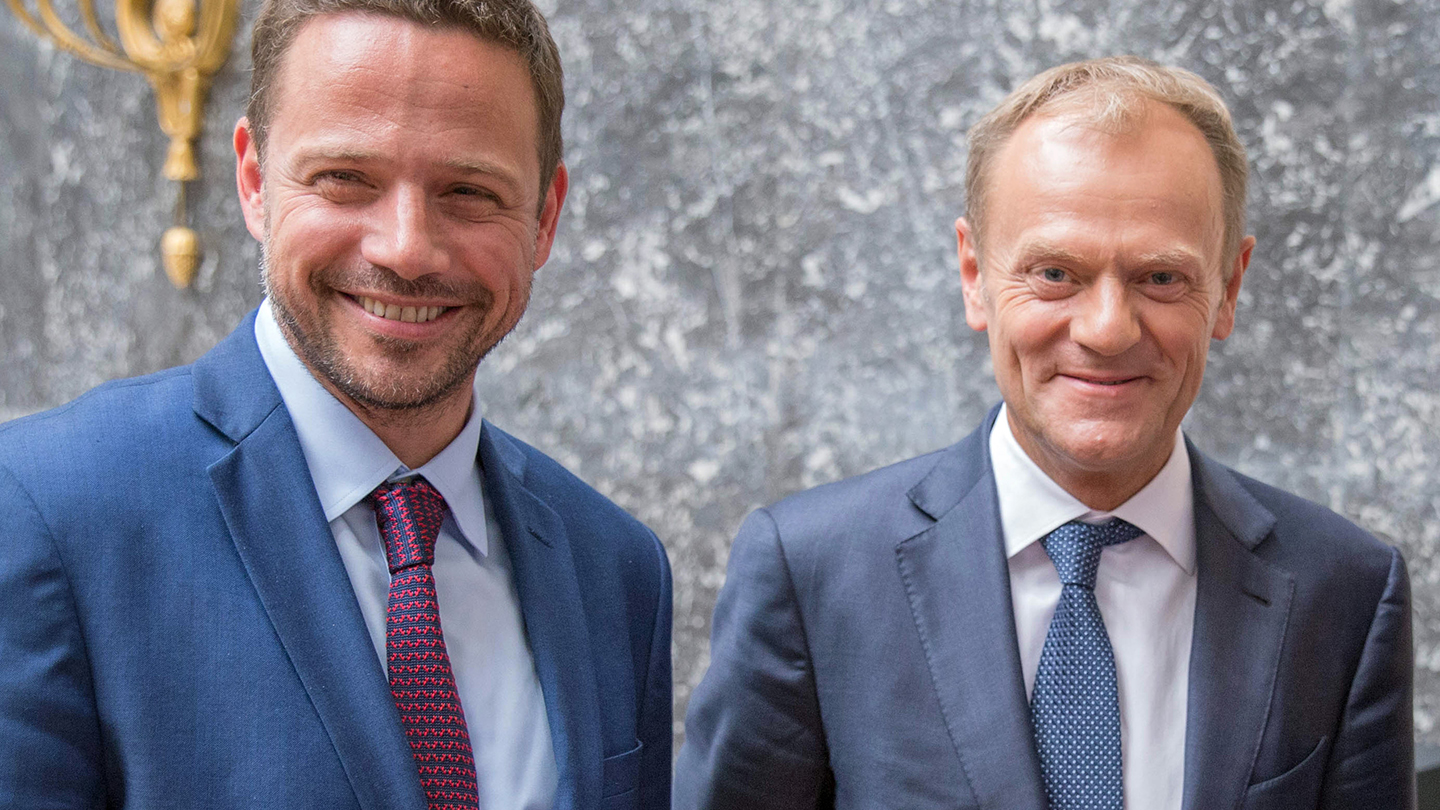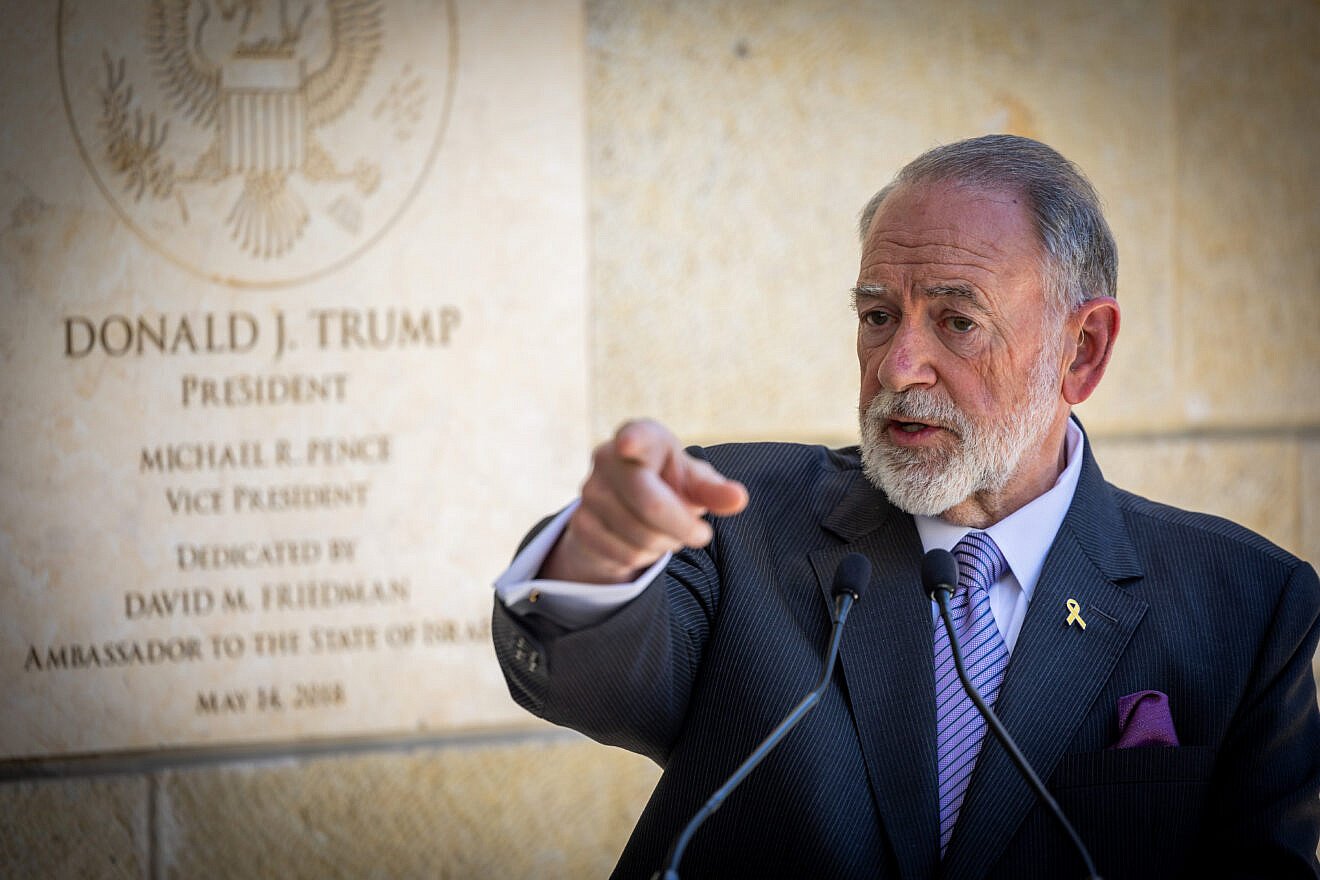 Rafał Trzaskowski i Donald Tusk. Fot. European People’s Party
Rafał Trzaskowski i Donald Tusk. Fot. European People’s Party
 To Tusk doprowadził do klęski Trzaskowskiego
To Tusk doprowadził do klęski Trzaskowskiego
Łukasz Łachecki
Donald Tusk przegrał te wybory, choć w nich nie startował. Najpierw zafundował Trzaskowskiemu niepotrzebne prawybory, był zbyt widoczny podczas kampanii, a na koniec pozwolił mu ogłosić zwycięstwo w chwili przegranej. Teraz zapowiada głosowanie nad wotum zaufania dla rządu.
W niedzielę wieczorem premier położył wisienkę na tort własnych błędów, pozwalając Trzaskowskiemu ogłosić zwycięstwo, mimo że miał dostęp do analiz wskazujących na triumf Karola Nawrockiego. Już wcześniej sabotował kampanię: organizacją prawyborów zmusił kandydata do wydłużenia kampanii, siał w elektoracie wątpliwości, czy Radosław Sikorski nie byłby jednak lepszy, aż wreszcie – na kilka dni przed drugą turą – powołał się na autorytet starego Murana. To wygląda tak, jakby Tusk robił wszystko, by Trzaskowski wybory te przegrał.
Grabarz bez sukcesorów
Jarosław Kaczyński, mimo że tyran i autokrata, potrafi się wycofać w cień i delegować zadania – czego dowodem jest wprowadzenie do Pałacu Prezydenckiego mało znanego doktora historii. Po przegranej z Bronisławem Komorowskim zrozumiał, że gdy w grę wchodzi walka o grupę wyborców szerszą niż twarda baza, jest obciążeniem dla własnej formacji.
Tusk ma w tej kwestii wyczucie słonia w składzie porcelany. Po rozczarowujących wynikach Trzaskowskiego w pierwszej turze nieźle rozumiejący elektorat pisowski publicyści niepisowscy, tacy jak Piotr Wójcik, sugerowali mu wyciągnięcie wniosków z wyników pierwszej tury i przyjęcie do wiadomości negatywnej oceny półtora roku pracy rządu wystawionej przez społeczeństwo. Zamiast tego Tusk złożył kolejną nierealną obietnicę. „Do końca maja będziemy gotowi z ponad 100 ustawami deregulującymi polską gospodarkę i administrację” – napisał na X.
„Stówa – wydaję ją, jakbym spluwał” – to chyba motto premiera, nieustannie mnożącego obietnice, z których nie potrafi się wywiązać. Pod tym względem bliżej mu do Marka Jakubiaka, obliczającego zasoby polskiego węgla na 900 lat, niż do jakiegokolwiek polityka chcącego zachować przynajmniej pozory wiarygodności.
W niedzielę wyborcy dali do zrozumienia, co sądzą o przekładaniu ofensywy ustawowej, usprawiedliwianym wetowaniem przez prezydenta Dudę trzech ustaw na krzyż i innymi wątpliwymi wymówkami. Ironią losu jest to, że „500 dni spokoju” koalicji zaprzysiężonej 13 grudnia 2023 roku minęło całkiem niedawno, pod koniec kwietnia.
Tyran Kaczyński nie ma naturalnego następcy na czele partii, ale kandydatów do walki o sukcesję znajdzie się co najmniej tuzin – od sztabowców Nawrockiego, samego zaledwie 42-letniego, przez ziobrystów, obajtkowców, morawiecczyznę i czarnkonators po szukającego nowych zawodowych wyzwań Andrzeja Dudę. Za to demokrata Tusk pomógł właśnie utopić głównego pretendenta do platformerskiego tronu. Krwawa batalia Marcina Kierwińskiego, Arkadiusza Myrchy, Izabeli Leszczyny czy Ewy Kopacz o przywództwo nad jedną z dwóch największych partii w Polsce byłaby z pewnością fascynująca, jednak nie wygląda na to, by miała się wydarzyć.
Nie znalazł argumentów
Najbardziej groteskową z niespełnionych obietnic Tuska pozostaje ta o liberalizacji prawa aborcyjnego. W lipcu minie rok, od kiedy premier poniósł żałosną porażkę w sprawie dekryminalizacji pomocnictwa w aborcji. Nie chodziło o powrót przepisu pozwalającego na usunięcie płodu, jeśli badania wykażą, że jego nieodwracalne upośledzenie może przy okazji zabić matkę – co obiecywała Koalicja Obywatelska przed wyborami – tylko o to, żeby ratująca życie kobiecie oszukanej przez innych lekarzy dr. Gizela Jagielska nie musiała znosić nalotu oszołomów, a bliscy osoby w ciąży nie zastanawiali się, czy za pomaganie jej wbrew państwu nie pójdą siedzieć.
„Bardzo źle się czuję z tym, że nie znalazłem argumentów, które przekonałyby tych wszystkich, którzy zagłosowali inaczej niż ja” – bronił się wówczas Tusk. „Czy znajdę argumenty, które przekonają prezesa Kosiniaka-Kamysza i jego klub do dość radykalnej zmiany stanowiska w sensie proporcji? Nie wiem, na razie nie słyszę głosów, które by upoważniały nas do optymizmu” – dodawał z grymasem bólu na twarzy, stając w prawdzie.
Czy dziś, gdy prawicowa Polska wrzuciła alt-rightowe turbodoładowanie, Tusk znalazł argumenty, które przekonają prezesa Kosiniaka-Kamysza i jego klub do dość radykalnej decyzji o zebraniu wszystkich rąk na wyraźnie tonący pokład? Jeśli na koalicyjnej łajbie znajdzie się dwunastu gniewnych ludzi, którzy poczuli, że wiatr historii wieje w nieco innym kierunku niż przed wyborami parlamentarnymi, będziemy szykować się do przyspieszonych wyborów jesienią i prawdopodobnego zwycięstwa koalicji Konfederacji i PiS.
Rozkład jazdy jest już znany
Zdrada PSL jest czysto hipotetyczna – partia słynie przecież z aktywu, dla którego honor i lojalność to cnoty tak samo nienegocjowalne, jak postulaty obrony KRUS-u czy dopłat dla deweloperów, na dodatek wcześniejsze wybory prawie na pewno wysłałoby jej powszechnie uwielbianych polityków poza ławy sejmowe. Ale z 32 posłów Polski 2050, 32 PSL i 21 sejmowych przedstawicieli Lewicy, czyli partii, których osłabianiem premier zajmuje się z godną podziwu konsekwencją, da się już uciułać doborową ekipę. Zresztą i w KO znalazłoby się co najmniej kilku myślących przyszłościowo polityków, którzy za obietnicę posady po wyborach przehandlowaliby własną matkę.
W 2006 roku przerażony Tusk we współpracy z Giertychem i Lepperem chciał przenosić obrady sejmu na Politechnikę Warszawską, gdy pojawiło się widmo ponownych wyborów w czasie sondażowej hegemonii PiS. Dziś, kilka tygodni po tym, jak niemiecki kanclerz Friedrich Merz już na starcie został rytualnie przekopany przez swoich koalicjantów, AfD w sondażach wyprzedziło konkurencję, gdy Reform UK Nigela Farage’a maszeruje ku demolce laburzystów i torysów, a Zjednoczenie Narodowe we Francji szykuje się na prezydenturę Bardelli, wygląda to na rzucenie ręcznika.
Nie wydaje się, by leciał z nami jakiś pilot, ale mimo to, jak mówił we wczorajszym wystąpieniu Tusk, „jedziemy dalej”. Tyle że rozkład jazdy jest już znany aż za dobrze.
 Redaktor prowadzący, publicysta Krytyki Politycznej
Redaktor prowadzący, publicysta Krytyki Politycznej
Zawartość publikowanych artykułów i materiałów nie reprezentuje poglądów ani opinii Reunion’68,
ani też webmastera Blogu Reunion’68, chyba ze jest to wyraźnie zaznaczone.
Twoje uwagi, linki, własne artykuły lub wiadomości prześlij na adres:
webmaster@reunion68.com




